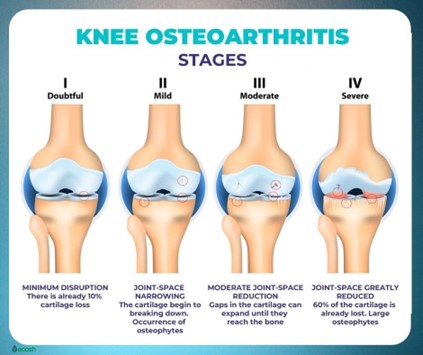A nurse is reinforcing discharge teaching with an older adult client who has osteoarthritis. Which of the following statements by the client indicates an understanding of the teaching?
"I will apply cold compresses when my joints are painful."
"I will limit purine intake in my diet."
"I plan to take water aerobics classes at the gym near my house."
"I will avoid the use of ibuprofen for pain control."
The Correct Answer is C
The statement by the client that indicates an understanding of the teaching is "I plan to take water aerobics classes at the gym near my house." Exercise is an important part of managing osteoarthritis, and water aerobics is a low-impact exercise that can help improve joint mobility and reduce pain.
Option a is incorrect because applying cold compresses may not be the most effective way to manage pain associated with osteoarthritis. Heat therapy is often more effective for this condition.
Option b is incorrect because limiting purine intake in the diet is recommended for clients with gout, not osteoarthritis.
Option d is incorrect because ibuprofen can be an effective pain reliever for clients with osteoarthritis.

Nursing Test Bank
Naxlex Comprehensive Predictor Exams
Related Questions
Correct Answer is A
Explanation
a . Provide a tour of the perioperative area prior to surgery.
The correct answer is a. Provide a tour of the perioperative area prior to surgery.
Explanation:
When caring for an adolescent scheduled for surgery, providing a tour of the perioperative area prior to the procedure is an important action for the nurse to take. Adolescents may experience fear and anxiety related to the unfamiliar environment and procedures associated with surgery. Providing a tour allows the adolescent to become familiar with the surroundings, equipment, and healthcare team, which can help alleviate anxiety and promote a sense of control.
Explanation for the other options:
b. Explain that anesthesia is a special type of sleep: While it is important to provide information about anesthesia to the adolescent, describing it as a "special type of sleep" may be misleading. Anesthesia is a medical procedure that involves more than just being asleep, and it is important to provide accurate information to the adolescent.
c. Keep medical equipment out of the client's sight: While it is important to create a comfortable and non- threatening environment for the adolescent, completely hiding medical equipment may not be feasible or necessary. Instead, the nurse should address any specific fears or concerns the adolescent may have and provide age-appropriate explanations and reassurance.
d. Wait until after surgery to explain the importance of coughing and deep breathing: It is important to provide preoperative education to the adolescent to promote their understanding and cooperation. Explaining the importance of coughing and deep breathing before surgery helps the adolescent prepare and participate in their own recovery. Waiting until after surgery may result in missed opportunities for early postoperative interventions.
In summary, providing a tour of the perioperative area prior to surgery helps familiarize the adolescent with the environment, reducing anxiety and promoting a sense of control.
Correct Answer is C
No explanation
Whether you are a student looking to ace your exams or a practicing nurse seeking to enhance your expertise , our nursing education contents will empower you with the confidence and competence to make a difference in the lives of patients and become a respected leader in the healthcare field.
Visit Naxlex, invest in your future and unlock endless possibilities with our unparalleled nursing education contents today
Report Wrong Answer on the Current Question
Do you disagree with the answer? If yes, what is your expected answer? Explain.
Kindly be descriptive with the issue you are facing.
